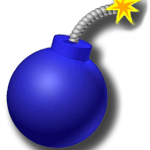With the publication and debate around Shape of Training (a UK-based review of how training the medical workforce will be revised for a new era of health care) there is a fair bit of … conversation … about a number of things. Some of these things include the question about how a ‘medical’ service is to be delivered with fewer doctors.
(a UK-based review of how training the medical workforce will be revised for a new era of health care) there is a fair bit of … conversation … about a number of things. Some of these things include the question about how a ‘medical’ service is to be delivered with fewer doctors.
Hot of the press, and in keeping with our new blog theme on qualitative work, there is a systematic review and meta-ethnographic synthesis of studies looking at how units have found the introduction of nurse practitioners (NP) into their clinical work.
The paper systematically searched for, appraised, and synthesised evidence from 26 studies that examined how teams had reacted, coped, and adjusted to working with nurse practitioners. They identified four main themes:
‘a threat to professional boundaries’,
‘a resource for the team’,
‘the quest for autonomy and control’ and
‘the ability to develop an interprofessional collaboration’
They noted challenges with fitting NP into the understanding of the team hierarchies, but positives from the experience and support NP could offer nurses and inexperienced doctors alike, the effect on doctor workload was seen variably – some reporting relief from some duties, others reporting that supervision of the NPs took up that time again – and some NP commented on taking tasks that had previously been completed poorly and doing a better job. The arrangement of mentoring, independence, and interprofessional developments were tricky and negotiated differently in different settings.
Where this leads us may be worth thinking through, particularly in re-designing times, and setting out a plan that might address the twists and turns that others have seen. On the other hand, it might be that my thinking about them we make them happen …
Would we improve #CYPExp if we changed what we said? “This may hurt” predictions in procedural disclosure may do harm http://t.co/EZwOcWnYGE
— ADC (@ADC_BMJ) February 10, 2015
@ADC_BMJ A short little practice modification you can do, ethically. Tell children otoscopy tickles. Then it does.
— Ian Wacogne (@ian_wac) February 10, 2015
– Archi